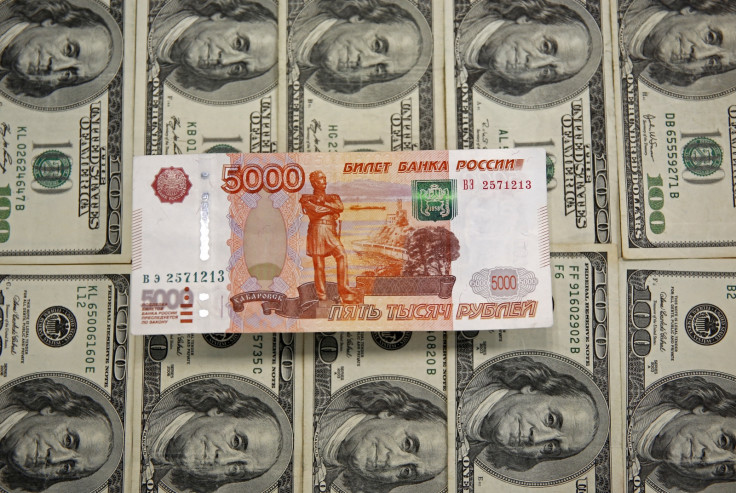Why a strong dollar spells trouble for emerging economies

In a period of heightened global economic uncertainty, investors have a keener-than-usual eye for a sure thing. In recent months more investors have decided that the closest they can get to a reliable investment is the US dollar, which may spell trouble for emerging markets.
That is because the US economy is currently recovering momentum at a faster rate than almost any other in the developed world. The upcoming years are set to be the best for the economy for a decade, with the White House predicting 3% growth this year and again in 2016. The International Monetary Fund thinks the economy will grow by 3.6% this year.
With the US economy steadily outperforming those of other developed countries, including Japan and the eurozone, the dollar has entered a boom period. Since late 2014, the dollar has risen by 11% against other commonly-used currencies.
Taking things back with the summer of 2013 as a starting point, the dollar's rise is even more remarkable. When the US Federal Reserve signalled it would wind down it quantitative easing programme, the dollar has risen 25% against international currencies.
The eurozone has embarked on a period of quantitative easing and remains bogged down in the significant challenge of keeping Greece in the eurozone. Japan, the world's third largest behind the US and China, has exited a recession but is still experiencing anaemic growth and the yen has weakened.
Economists have predicted these major economies will experience low growth in 2015, just as the US Federal Reserve starts to tighten its own monetary policy.
Analysts are adamant the Fed will raise interest rates later this year, the first rise in almost a decade. This overall trend will make dollar denominated assets, and the dollar currency itself, more attractive.
Why emerging markets will suffer
To get to the root of emerging markets' vulnerability to a strong dollar, you have to take the story back a decade, to a pre-financial crisis world. The years leading up to the collapse of Lehman Brothers, and the global financial crisis that followed, were marked by a period of low confidence and low interest rates for dollars and dollar-denominated debts.
At this time, emerging market investors borrowed dollars readily, because the low interest rates meant they could borrow more cheaply than if they borrowed in domestic currencies.
When the Federal Reserve introduced its own quantitative easing programme in late 2008, it triggered another drastic rise in the amount of dollar-denominated debt being bought by investors in emerging economies.
The amount of dollar debts owned by foreigners has reached $9tn, with emerging markets responsible for around half of that overall figure. Even a slight shift in the exchange rate can be painful for these investors, making their debts more expensive in their local currencies. That is what is happening as the dollar soars and other currencies are devalued.
The biggest risks are for borrowers whose earnings do not come in dollars but whose expenditure does. Businesses without easy access to dollars could face serious financial strain as the dollar rises.
While governments across emerging economies have substantial reserves in dollars (and have acted to bailout companies that could not service their own dollar debt), governments will not be able to save all of the stragglers. The stronger the dollar grows, the greater the chance that these companies will begin to fail.
This process could have already begun in Brazil, where two sugar producers have already defaulted on their debts. Already suffering from a prolonged drought and facing subdued commodities prices, Brazil's sugar producers are struggling to pay their dollar-denominated debts. Those debts are going to keep growing as the real currency slumps against the resurgent dollar.
In a worst-case scenario, a wave of defaults across the debt-laden emerging economies could lead to rapid capital outflows away from these economies. With the strengthening dollar, US investments will look even better, and it would be an obvious alternative destination for investors.
It may not even take a wave of defaults to prompt a major reallocation of capital away from the likes of Brazil and Russia to the US. Investors will no doubt have taken note of the potential for an interest rate hike in the US this year and the shift of capital away from emerging economies could already be under way on a small scale. If the dollar continues to strengthen, the trend will probably get stronger this year.
© Copyright IBTimes 2025. All rights reserved.






















